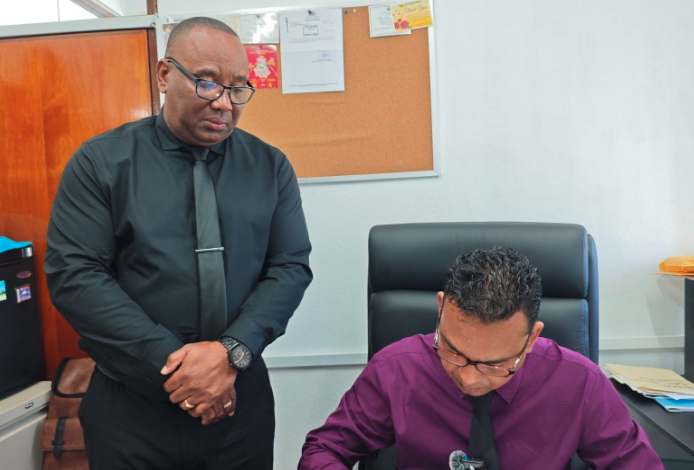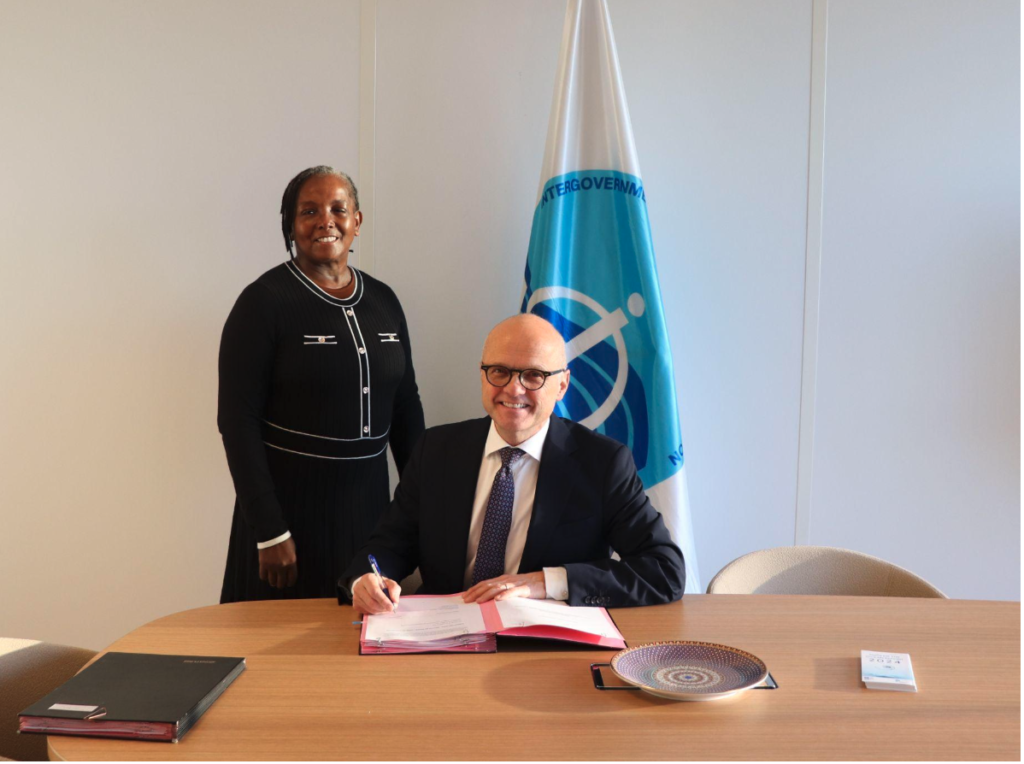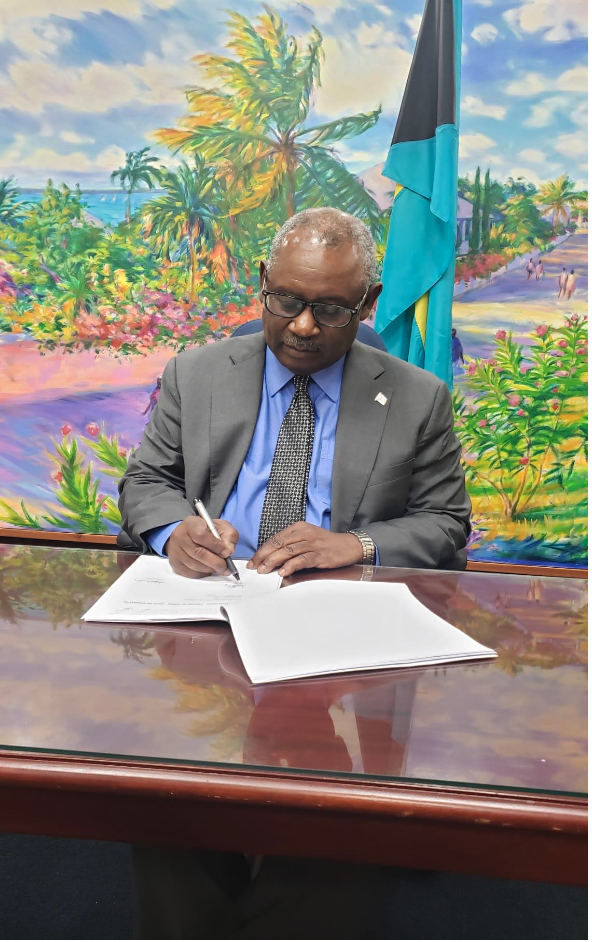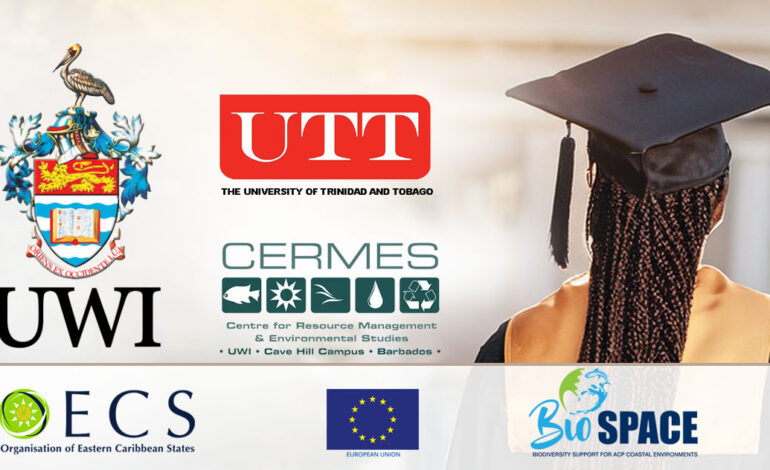
A Historic Step Forward for Ocean Governance in the Wider Caribbean
Courtesy of PROCARIBE+
January 23, 2025
The Ocean Coordination Mechanism (OCM) for the Wider Caribbean has been officially activated and will commence its activities this year, marking a significant achievement in advancing the sustainable management of marine resources in the region.
With the signature of the Government of the Bahamas on 19 December 2024 and of the IOC of UNESCO on 14 January 2025, a total of 17 States and 9 Intergovernmental Organizations (IGOs) have now signed the “Memorandum of Understanding (MoU) Enabling the Creation of a Coordination Mechanism to Support Integrated Ocean Governance in the Caribbean and NorthBrazil Shelf Large Marine Ecosystems.”
The OCM is designed to facilitate enhanced collaboration among countries, IGOs, and other ocean stakeholders, promoting well-coordinated efforts to restore and preserve the region’s valuable marine ecosystems. By fostering synergies and improving efficiency, it aims to address critical environmental challenges while unlocking the economic, environmental, and social benefits of a healthy ocean.
Key initiatives of the OCM include the development of a holistic Ocean Action Programme, the launch of a periodic reporting mechanism on the “State of the Marine Environment and Associated Economies”, and supporting the strengthening of climate-resilient ocean-based economies – the latter being of key importance for the region’s many Small Island Developing States (SIDS).
Globally, there is growing recognition of the need for enhanced coordination among the many organizations and institutions dealing with marine resources. The Wider Caribbean region has positioned itself as a leader by pioneering this unique mechanism.
With additional memberships expected in 2025, the aim is that the OCM will ultimately bring together 11 Intergovernmental Organizations – including several UN Agencies – as well as the governments of the 32 States and Territories from the region.
Honourable E.P. Chet Greene, Minister of Foreign Affairs, Trade and Barbuda Affairs of Antigua and Barbuda, emphasized:
“The Ministry and by extension the Government remain committed to the goal of fostering partnerships and coordination to achieve and safeguard healthy marine and coastal ecosystems. These ecosystems are key drivers for thriving, sustainable and climate-resilient ocean-based economies in the Wider Caribbean Region and hemisphere.”
Dr Didacus Jules, Director General of the Organization of Eastern Caribbean States
“The OECS Commission is thrilled that the Ocean Coordination Mechanism (OCM) officially came into effect, marking a significant milestone in our collective efforts to safeguard the health of the Caribbean and North Brazil Shelf marine ecosystems. This achievement reflects the tireless work and collaboration of intergovernmental organizations and countries dedicated to sustainable ocean governance. The OCM will undoubtedly strengthen regional cooperation, promote sustainable fisheries, and contribute to the resilience of our coastal and marine environments, ultimately driving the prosperity and well-being of livelihoods and economies. As the first intergovernmental agency to sign the MOU, the OECS is honoured to serve as the Convener of the inaugural Executive Group Meeting and looks forward to providing initial leadership on this important initiative.”
Felicia Cruz, Director of Blue Economy at Belize’s Ministry of Blue Economy and Disaster Risk Management, upon the OCM MoU indicated:
“This endorsement underscores Belize’s commitment to the sustainable management and utilization of our ocean resources, aligning with our broader objectives of fostering a resilient blue economy. We look forward to strengthening collaborative efforts with our regional partners through the operationalization of the OCM.”
Mr. Christopher Corbin, Coordinator of the United Nations Environment Programme (UNEP), Cartagena Convention Secretariat
“Given the role of the Cartagena Convention and its Protocols in supporting work on two of the major transboundary issues facing the Wider Caribbean Region – Pollution and Marine Biodiversity loss, the formalization of the Ocean Coordinating Mechanism is key to further strengthening of the relationship between the Secretariat and other regional organizations involved in oceans governance. The OCM will enable more effective use of limited resources and ultimately the sustainable management and use of coastal and marine resources in the region. We look forward to playing a critical role as part of this governance framework moving forward.”
Current State and Territory Signatories of the OCM MOU are: Antigua and Barbuda, Aruba, the Bahamas, Belize, Costa Rica, Curacao, Dominica, Dominican Republic, Grenada, Haiti, Honduras, Netherlands on behalf of: Bonaire – Saba – Sint Eustatius, Panama, St. Kitts and Nevis, Saint Lucia, Suriname, United States of America. Current Intergovernmental Organization Signatories of the OCM MOU are: Caribbean Community (CARICOM) Secretariat, Caribbean Regional Fisheries Mechanism (CRFM), Central American Fisheries and Aquaculture Organization (OSPESCA), Central American COmission for Environment and Development (CCAD), Organisation of Eastern Caribbean States, Intergovernmental Oceanographic Commission of the United Nations Educational, Scientific and Cultural Organization (IOC-UNESCO), United Nations Development Programme (UNDP), United Nations Economic Commission for Latin America and the Caribbean (ECLAC), United Nations Environment Programme (UNEP) represented by its Caribbean Regional Coordinating Unit (CAR/RCU).








